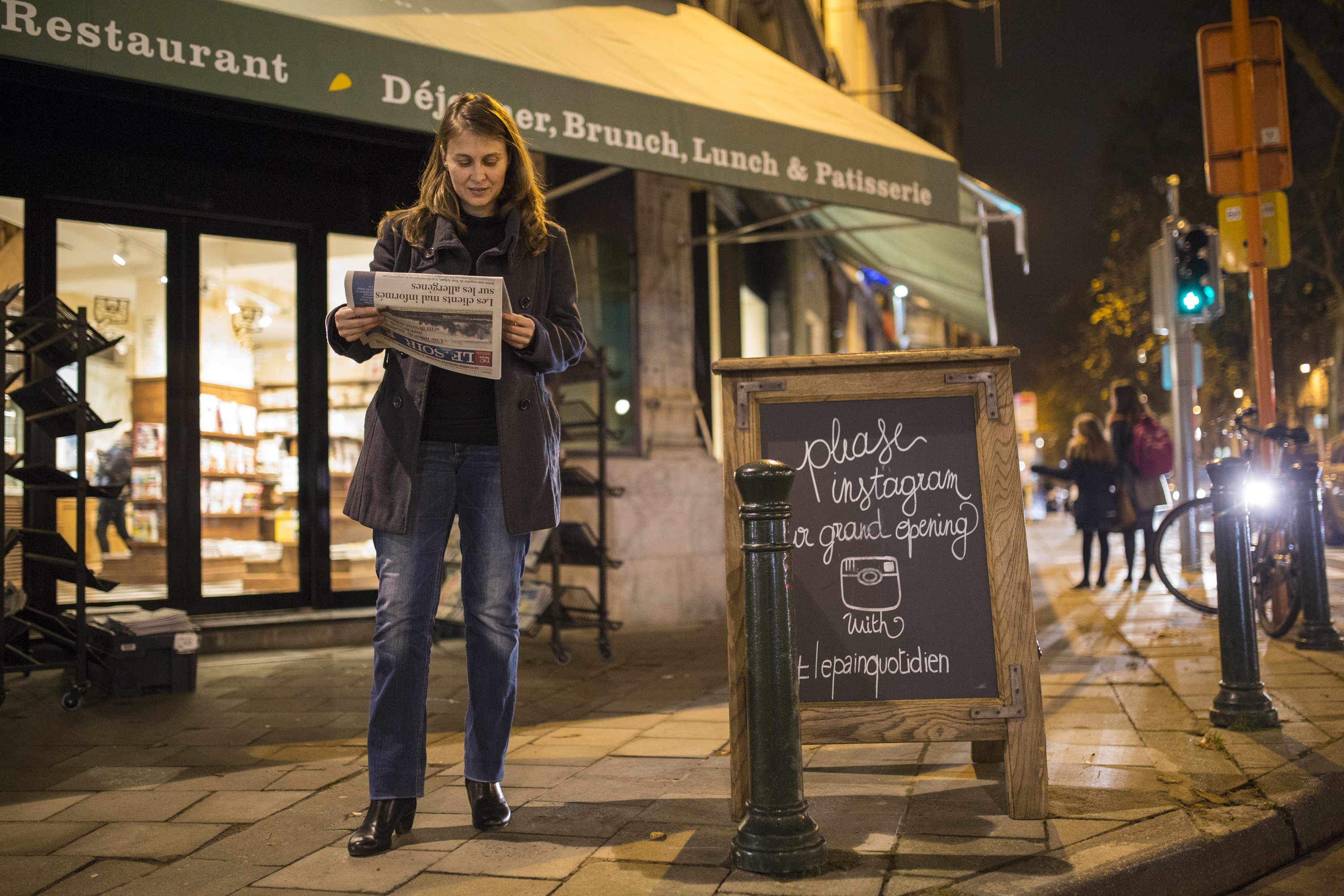Catalan minister Meritxell Serret (born in Vallfogona de Balaguer, 1975) meets us in a café in central Brussels. She has been living for a month in the Belgian capital. She admits that she was very clear —like the rest of the members of the Catalan government— that she did not want to go to prison, but that leaving the country was not an easy decision. Once in Brussels, and after the difficulties of the first weeks, the minister defends the need and the reasons to articulate a Catalan government structure in exile in Brussels.
How did you decide to go to Brussels?
It can't be said that we had it all perfectly planned of how we would go by any means. What we did agree as a government was to try and take the opportunity which seemed to be opening here in Belgium. The idea was that the entire government could come. Afterwards we all weighed up the personal circumstances of each one, the uncertainty, the fact that in coming here, there was no absolute certainty either, that they would not end up extraditing us...
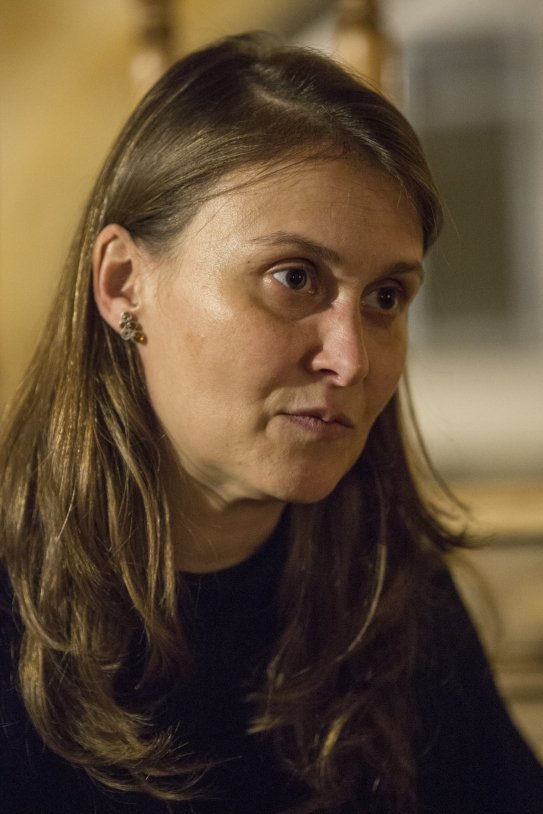
It was very clear to all of us that we did not want to go to prison
What are the personal circumstances that you weigh up when you have to take a decision like this?
Basically, we were all very clear that we did not want to go to prison. Neither those who are now in prison nor we who are here, but we had assumed the risk, especially after seeing what happened on the 1st October [referendum day] and on 20th September [Spanish police raids]. When you take these decisions there are personal circumstances that you weigh up, those who have children, your family, the distance... We had to decide without being able to talk it over very much with our relatives. In my case, my parents didn't know, nor my siblings... It's complex, very complex. It's an instinct, a question of both survival and responsibility. Deep down we knew that the fact of some of us staying there and some of us leaving opened up some possibilities. You are never totally convinced about the decision. In a few hours you have to decide and you say: let's get on with this. I try not to overthink it now.
My parents didn't know that I was leaving for Brussels, and nor did my siblings
What sort of life do you have here, do you work together?
That indeed has been very clear from the first moment, that there are five of us and we five need to work closely together. It is not a dynamic that we have since the first day, by any means. Especially in the first weeks there has been an important psychological impact, we had to settle down, we had to find organise such basic issues as our accommodation, you need to start to structure your surroundings.
What has been the most difficult?
Everything is difficult, especially the moments of vertigo when you think of the decisions you have taken and the possible consequences, and the possible threats if in the end they extradite you, the justice there will be much harder due to the fact that they consider that you have run away, or if, on the other hand, they do not extradite you, then as long as the situation lasts, you will have to be here and you will not be able to go home. The vertigo that you have taken a decision that alters the future of your life. You do not know for how much time, six months, or six years. Or twenty years. Nobody can tell you that. But we are here, we are well, there are many people who are helping us. We are here for a just cause, because the mental framework that is being installed cannot be allowed to win, this attitude of punishment and the criminalization of the independence movement, of the Catalan government, it is antidemocratic.
We have to start to organize ourselves, structure ourselves and construct the environment to adapt to this uncertain framework
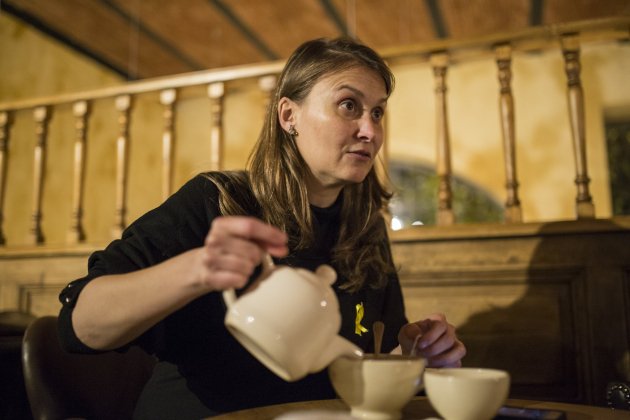
The sense of a provisional nature must be one of the hardest aspects...
Yes, a totally provisional nature. You had some foundations and now they are no longer there. You had certainties, there aren't any certainties now. But we have to have the capacity to adapt, and to carry out this adaptation, we have to start to organize, to structure and to construct this environment to adapt to this uncertain framework and at the same time to be capable of reinforcing one another and using the opportunity that there is, because it is an opportunity, to develop our political project and present a proposal for the future of the country, because that is what we miss and what we were wanting to do.
We have to organize a government structure in Brussels. We will have a work plan and a plan for our activity
Will you set up a structure here in Brussels?
Out of necessity, we have to organize ourselves and have a minimum structure. The members of the Catalan government, we are already a structure, and from there we have to have minimum technical support to be able to articulate our activity. We will have our work plan and a plan for our activity here. We have to be able to go on building. Obviously I don't imagine organizing a structure like a whole department here. That is not the objective nor does it have any sense. We already have a Catalan administration and what we have to do is preserve and restore the institutions that we have there.
Marta Rovira spoke about the possibility of there being an executive government and a legitimate government...
That is part of these uncertain aspects, of how we will plan these scenarios after election day. As long as they maintain article 155, the injustice of the imprisonments, as long as the Spanish state is taking actions that under normal democratic conditions it could not do, it will be necessary to maintain this government in exile, this legitimate government. What is clear to me is that, although I regret it a lot, it will be almost impossible to act as Catalan minister of agriculture from here. Another thing is that we cannot take action in a governmental sense. This is what we will see, in terms of how to construct things after 21st December.
There was an attempt to create a transversal list, all together, it was the way to avoid losing support
Many people do not understand why in the end there are several pro-independence electoral lists...
I understand that everybody wants explanations, and sometimes these things can be explained clearly and sometimes not so clearly. In these elections what interests us is to reach the maximum number of votes and of citizens. I do not know if there is a better way. An absolutely transversal list that provided this ability to say that we are all united against article 155 and that we reached every part of the political spectrum, that was the way to ensure that support was not lost because we had the capacity to attract right across the political spectrum. This was not possible. I know that in Catalonia people worked for this. Due to a lack of time, technical problems, political questions... I don't know the exact details and I think that now we are already where we are and what we have to do is to keep moving forward.
Do you expect to take possession of your seat as a member of parliament?
That is one of those uncertainties. Depending on the results and the reactions and always with legal advice, we will see if we are capable of that or not.
Do you want to?
Yes, obviously. If not, we wouldn't put our names on candidatures, our desire is to be able continue exercising our role in the normal way, that is to fight to advance a political project by democratic means.
Minister, do you see yourself as being a long time in Brussels. You've made it clear that you do not contemplate the alternative of prison...
No. I do not want that.
If there is no other way out, will you stay here, in Brussels?
Yes, because as long as this is not put to rights, it will mean that there is no democratic normality in Catalonia.
And the lawyers, what have they told you?
The lawyers tell us that obviously what is happening is not a symptom of democratic normality. On December 4th we have to present ourselves in front of the judge. Depending on the outcome of that, we'll have the option of appealing and continuing on. They tell us that all this does not resemble democratic normality, that both the instructions of the arrest warrant and the accusation itself and the crimes that they accuse us of, we know that the facts do not support what they are claiming and, therefore, this makes us to a certain point optimistic, that we have some chance of success in this approach, and so we won't give up until normality is restored.
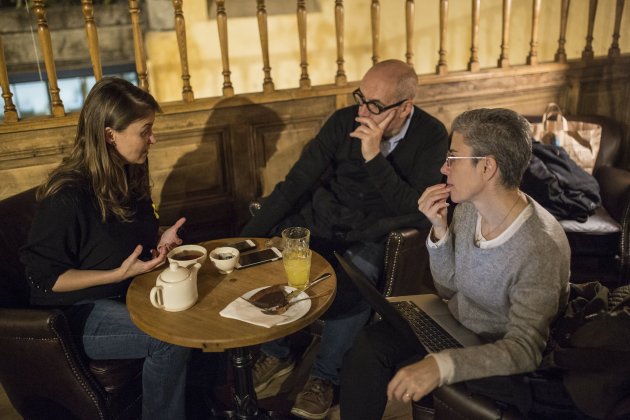
Do you know anything about how your ministry is functioning?
I know, because people explain to me a little of how it is going. We are in the same place as we were, there are decisions that could be taken that they do not take because with the intervention [in Catalan government] they do not follow a rhythm. We had a series of projects, all that has stopped. The sensation of a loss of opportunity is definitely there.
Now is when we have to reclaim a democratic approach most strongly, reclaim negotiation and making agreements. That is how we can best put them against the ropes
One of the present debates in this precampaign is whether to leave to one side the path of unilateralism and to make a commitment to a bilateral approach.
If we knew one thing after the referendum it was that in the end there had to be a negotiation, even if you went forward by a unilateral path in the end there would be a negotiation and we never renounced our acceptance of rights and duties in terms of how the relationship was articulated with the Spanish state and how this divorce would take place. What we have learned since the 1st October and 20th September is that the state changes its rules, the democratic approach has been smashed to bits. Thus, I understand that now is when we have to reclaim a democratic approach most strongly, reclaim negotiation and making agreements. That is how we can best put them against the ropes.
Marta Rovira's statement about the threat of violence [if the Republic had been implemented] has also led to controversy, did you know about that?
Not directly, no. These conversations took place through the channels of the president, the vice president, and other routes. What did reach us was through the Catalan government. As a government we were reminded and we had to assume that there was this threat. Violent means can only be exercised by those who have military control and who are willing to deviate from the democratic route because it can generate a framework of impunity, as is happening now.
And did people speak about the army?
Yes.
Do you maintain contact with the members of the government that are in prison?
No, directly, we have not been able to. Through other people and intermediaries. It's sad and it gives me a lot of heartache.
You can't get excited about developing individual or collective projects when there is a background of violence
When you assumed the responsibility of the ministry did you think it would be anything like this?
No. We knew that it would not be simple, that there were risks, but always within the democratic structure. The change took place from 20th September and really happened on 1st October. Suddenly, it made you realise that the things which people had explained to you, from before I was born, in 1975, were reappearing overnight. You were brought up in a society with certain values, with an understanding of things, they explained the past to you as a thing that won't come back because it had died and then it appears in front of you so crudely and so coldly... Hadn't we foreseen everything? No. I did not expect gratuitous violence against the people. No. I knew that they would intimidate. But this scenario did not come into it. And now what we cannot do is to consider it as normal. You can't get excited about constructing individual or collective projects when there is this in the background.
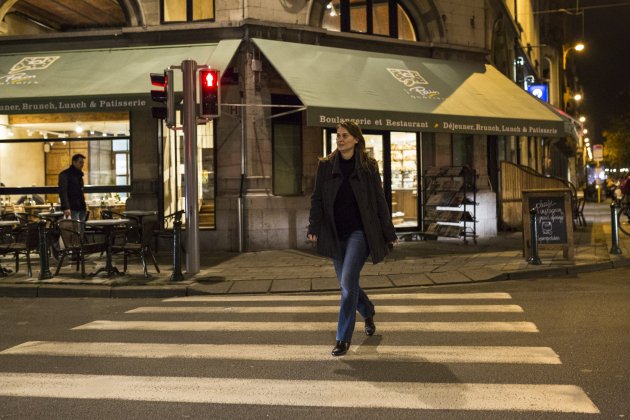
There are many people, leaders and civil servants who are trying to avoid our self-government from being dismantled
Many people in Catalonia wonder: what is the solution for this, with half a government in exile, half in prison, the institution absolutely dismantled, taken over ...
I wouldn't say dismantled, there are many people who are trying to avoid that our self-government is dismantled. Because, at root, behind these actions of the Spanish state and the Spanish government and those that support article 155, apart from going against independence, there is also the intention of dismantling the Spanish state of autonomous regions. In 1978 [year of the constitution], the call was for freedom, amnesty and a Statute of Autonomy. The freedom we are already fighting for again, the amnesty would no longer be called amnesty, it would be called pardon, or something like that, and if it was up to them before you know it we would be once again demanding the Statute of Autonomy, because they demolished it in 2006 and now they want to take away the Catalan competences that are still left to us. This democratic involution is so barbaric and becoming absolutely obvious, now more than ever.

